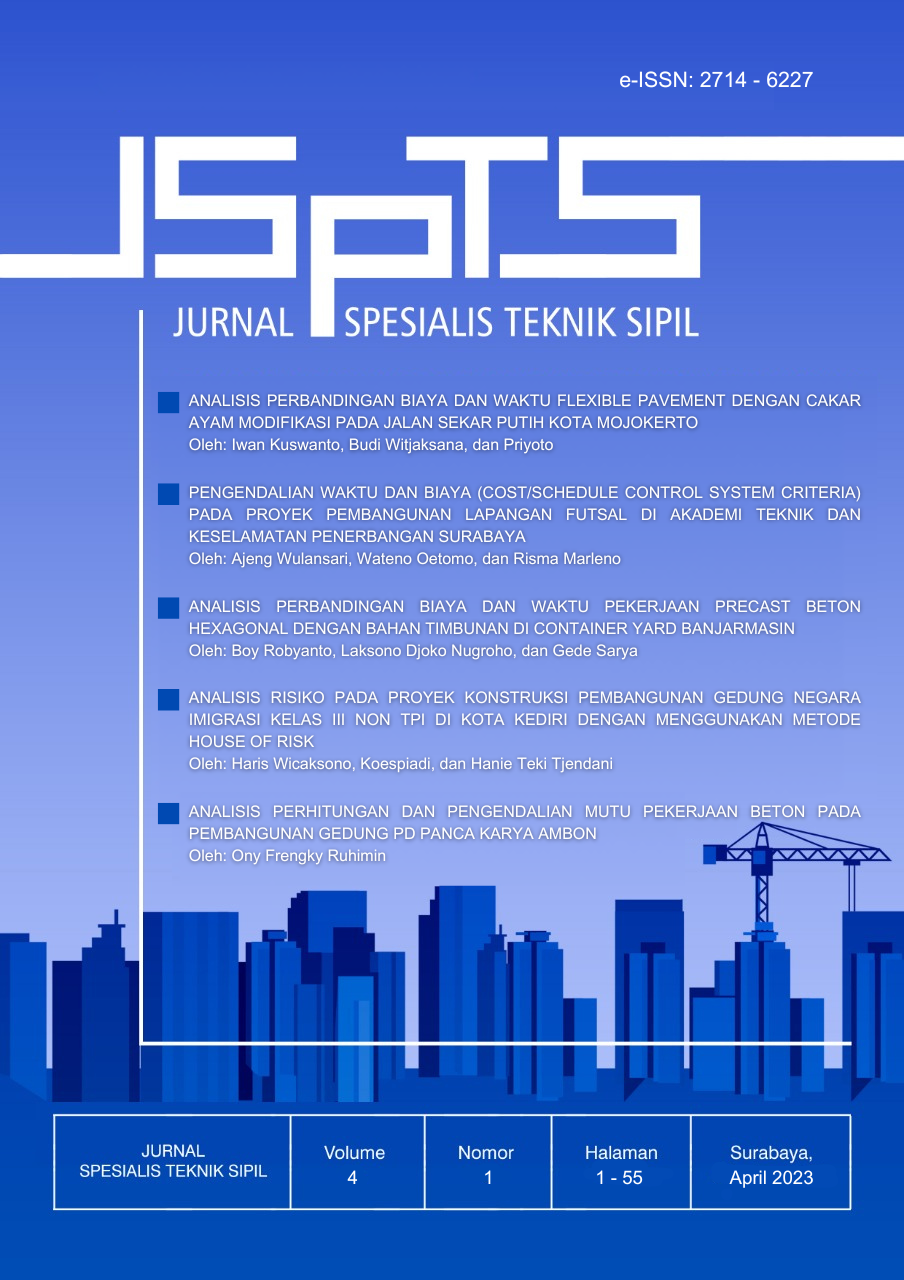PENGENDALIAN WAKTU DAN BIAYA (COST/SCHEDULE CONTROL SYSTEM CRITERIA) PADA PROYEK PEMBANGUNAN LAPANGAN FUTSAL DI AKADEMI TEKNIK DAN KESELAMATAN PENERBANGAN SURABAYA
Keywords:
Earned Value, Biaya, WaktuAbstract
The success of a project cannot be separated from a series of activities which include the stages of planning, implementation and supervision. In the implementation of a project can experience delays, acceleration, or on time according to the schedule of the project plan. This research takes a case study of a futsal field construction project with a duration of 14 weeks. The purpose of this research is to determine the cost and time performance as well as to control the achievement of project completion in accordance with the specified time with the addition of manpower. This study uses the Earned Value Concept method to control project costs and schedules. This method provides information on Cost Variance, Schedule Variance, Cost Performance Index, and Schedule Performance Index for a project in a reporting period. From this method, information is also obtained on the prediction of the amount of costs and the length of time for the completion of all work based on performance indicators when reporting. From the results of the analysis at the end of the review week in week 9, it shows that the costs incurred are lower than the budgeted costs and the implementation time is slower than the planned schedule as indicated by the value of CPI = 1,216 (CPI > 1) and SPI = 0.598 (SPI < 1). The results of the calculation of the estimated final project cost of Rp. 503,278,428 is less than the budget of Rp. 612,000,000 with an estimated completion time of 135 days which means slower than the planned 106 days while the remaining project completion time is 43 days. To control the late project so that the project can be completed according to a predetermined schedule plan, it is necessary to allocate labor: 35 workers, 4 masons, 10 welders, 8 mild steel workers, 2 plumbers, 2 plumbers, carpet fitters. 7 people, 23 painters, 11 electricians, 5 head builders, 2 foremen
Downloads
References
Ervianto, W. I. 2004. Teori-Aplikasi Manajemen Proyek Konstruksi. Yogyakarta. Andi.
Ervianto, Wulfram I. 2005. Manajemen Proyek Konstruksi.Yogyakarta. Andi Offset.
Oetomo, Wateno. 2014. Manajemen Proyek dan Konstruksi dalam Organisasi Kontemporer bagian II. PT. Mediatama Saptakarya. Jakarta.
S.Barrie, Donald. 1993. Manajemen Konstruksi Profesional. Erlangga. Jakarta.
Soeharto, Iman. 1999. Manajemen Proyek: Dari Konseptual sampai Operasional. Edisi Kedua. Erlangga. Jakarta.
Soemardi, B.W., dkk. 2007. Konsep Earned Value untuk Pengelolaan Proyek Konstruksi, Buku Referensi, Konstruksi : Industri, Pengelolaan dan Rekayasa. Institut Teknologi. Bandung.












